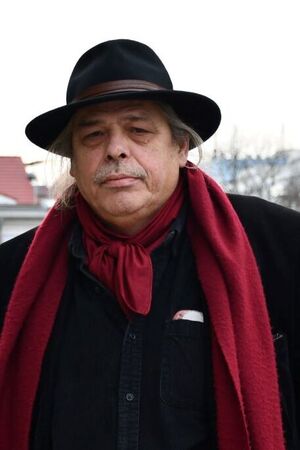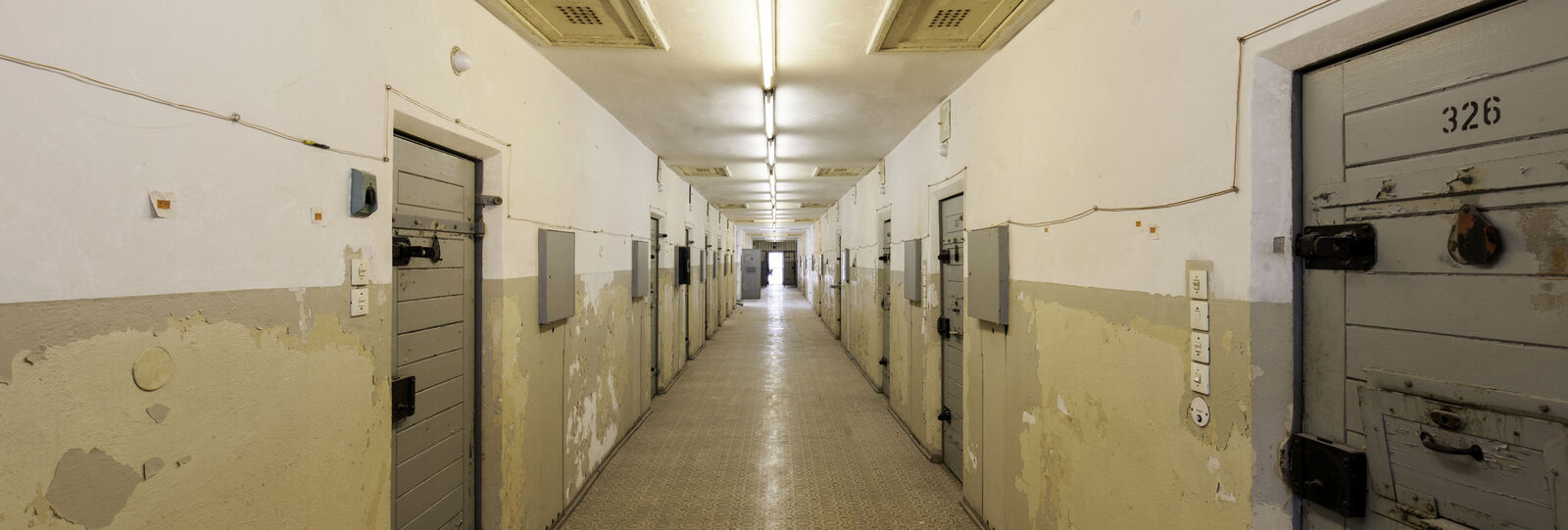Ret Langmeier

Ret Langmeier was born in East Berlin in 1959 and grew up in Berlin-Mitte. After leaving school, he attended the GDR Border Troops Officers' College in Plauen. After one year, Langmeier was transferred to Berlin as a sub-lieutenant. Here he repeatedly came into conflict with the party and state leadership, whuch ultimately led to his dismissal for “health reasons”. He was also de-registered from the Ernst Moritz Arndt University in Greifswald, where he wanted to study to become a teacher of German and history after his time in the army.
Ret Langmeier found a new political home in the GDR civil rights and peace movement and became involved in the preparation and organisation of the Berlin Blues Fairs, among other things. He earned his living as a musician and artist in East Berlin. From 1980, he regularly travelled to Poland, as he hoped that the developments in the country would lead to a second Prague Spring. and was involved in the peace and civil rights movement. In Gdansk, he collected leaflets and materials from the Solidarność movement in order to organise an exhibition about the Polish civil rights movement in a church in Berlin. On his return journey from Poland in November 1980, he was arrested on the train at the border and taken to the Hohenschönhausen remand centre.
After four months in pre-trial detention, Ret Langmeier was committed to the forensic psychiatric ward in Berlin-Buch, which at least spared him the threat of several years in prison. After his release, he began to become politically active again. In 1984, the GDR authorities threatened to initiate further political proceedings against him and advised him to leave the country. In November of the same year, R. Langmeier left the GDR to West Berlin. He calls this his "exile without return", after Milan Kundera.
Because he found it unbearable to be so close to his homeland, which he was forever barred from entering as an undesirable person, he moved to Lower Saxony in 1986. He started a family there, worked as a social worker in Braunschweig after completing his studies and remained active in the arts and politics.
Ret Langmeier has been guiding groups of visitors through the Berlin-Hohenschönhausen Memorial site since 2010 and has been working for the Co-ordinating Office of Contemporary Witnesses at schools and educational institutions since 2016.
